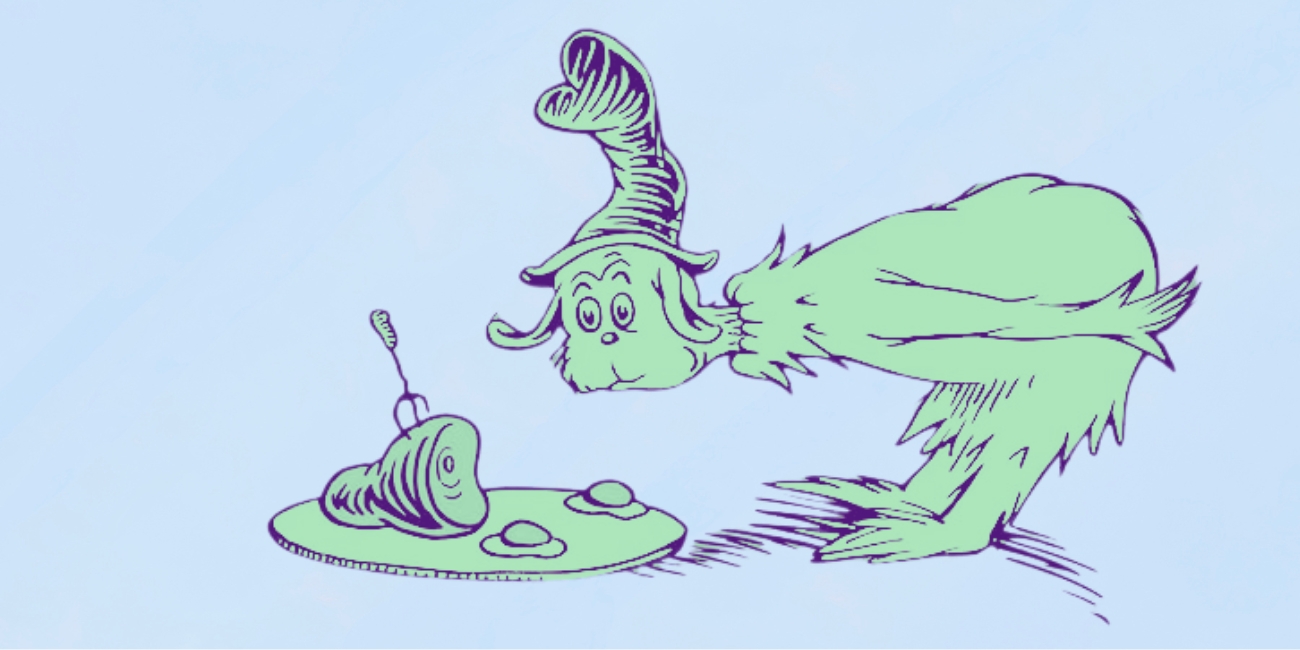August 12th marks the 65th anniversary of Dr. Seuss’s Green Eggs and Ham, a book whose orange cover fills me with delicious nostalgia. Svetlana Boym defines nostalgia as “a longing for a home that no longer exists or has never existed.” What imaginary home do I miss so much? And why do so many of us miss this same place?
As a children’s librarian who also teaches a graduate course on the History of Children’s Literature, I struggle with the question of how to present Dr. Seuss, aka Theodor Geisel. It is now widely known that Geisel’s political cartoons during WWII and early children’s books contained offensive depictions of Asian, Arctic Indigenous, Middle Eastern and African people.
My students of all ages devour Seuss. In my library in Queens, NY, kindergarteners through second graders clamor for Green Eggs and Ham after binge-watching the 2019 Netflix series of the same title (and all the Grinch and Lorax movies too). I will confess: when Random House offered my school the loan of a free Grinch costume of Broadway production quality, I jumped at the chance to host a holiday event where students could help grow the Grinch’s heart through acts of kindness. Geisel isn’t my students’ role model, but the Grinch is a fun cultural symbol that unites a variety of people. The event stirred up Seussmania, and library checkouts soared.
So while I do continue to read Dr. Seuss, I also reject Geisel as a cultural ambassador for children’s literature. For over two decades, schools have celebrated the National Education Association’s Read Across America Day on Dr. Seuss’s birthday, March 2, with children dressing up in red and white striped hats to represent their commitment to reading—as if Seuss were representative of all children’s books. In 2017, Katie Ishizuka-Stephens, Director of the Conscious Kid Library, asked the NEA to reevaluate their approach.
Ishizuka-Stephens’s report emerged the same year that Cambridge, MA librarian Liz Phipps Soeiro made headlines for rejecting First Lady Melania Trump gift of ten Dr. Seuss books, including Green Eggs and Ham, to her top-performing school in 2017. She described Seuss as a “cliche” and “tired and worn ambassador of children’s literature,” and recommended a list of ten diverse books instead. The ten books Soerio recommends are excellent additions to any library, but I wished for the inclusion of a silly, Mo Willems text or, better yet, a wacky book by a non-white author. Kids need to have belly laughs and almost pee their pants when reading—which is something that few other authors besides Seuss can do without invoking potty humor. I’m eager for more silliness.



In our schools and library Dr. Suess has just been one author among hundreds. No need to move on, just know there’s a lot more children’s lit out there.